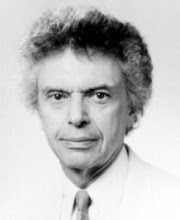Reflections About Classical Adlerian Depth Psychotherapy: Theory, Practice, and Life
A vigorously optimistic and inspiring approach to prevention and treatment, Classical Adlerian Depth Psychotherapy balances the equally important needs for individual, optimal development and social contribution. With a solid foundation in the original teachings and therapeutic style of Alfred Adler, it integrates the self-actualization research of Abraham Maslow. For more information, visit our web site at http//www.Adlerian.us
About Me

- Name: Henry T. Stein, Ph.D.
- Location: Bellingham, Washington, United States
Classical Adlerian psychotherapist and training analyst. Director of the Alfred Adler Institute of Northwestern Washington, offering distance training in Classical Adlerian psychotherapy. Tel: (360) 647-5670. Email: htstein@att.net
Wednesday, June 27, 2007
Tuesday, June 26, 2007
How Doctors Think
In his new book How Doctors Think, Jerome Groopman critiques contemporary medical education and training. He states that doctors are leaning toward research and statistical evidence, instead of experience and expert opinion, out of laziness and misplaced deference to authority. Consequently, the principle of "evidence before acting" will lead to physicians who stop thinking, stop evaluating each patient as a unique human being, and stop applying their knowledge to the peculiarities of the person before them. Many "bean-counter" doctors recommend treatments that are seemingly supported by statistics but may not be appropriate for the person they are facing. Groopman urges doctors to become more conscious of their own feelings, emotions, responses, and choices, and to promote a greater collaboration with patients.
Groopman also suggests that the values, attitudes, and behavior of a doctor matter far more than the reputation of the institution at which he or she works. He also cautions doctors about the reliance on electronic decision aids, which might actually encourage more mistakes, by distracting the physician away form what should be his primary focus: the patients' own story. Accurate diagnosis requires an investment of time to listen, observe, and think. Groopman's repeated encouragement to the doctor is: "slow down."
There are significant parallels in the field of psychotherapy with the emerging pressure from insurance companies for "evidence-based" practice. The claim that a specific type of psychotherapy should be authorized for a class of symptoms, ignores the uniqueness of the client as well as the character and skill of the specific psychotherapist.
Groopman also suggests that the values, attitudes, and behavior of a doctor matter far more than the reputation of the institution at which he or she works. He also cautions doctors about the reliance on electronic decision aids, which might actually encourage more mistakes, by distracting the physician away form what should be his primary focus: the patients' own story. Accurate diagnosis requires an investment of time to listen, observe, and think. Groopman's repeated encouragement to the doctor is: "slow down."
There are significant parallels in the field of psychotherapy with the emerging pressure from insurance companies for "evidence-based" practice. The claim that a specific type of psychotherapy should be authorized for a class of symptoms, ignores the uniqueness of the client as well as the character and skill of the specific psychotherapist.
Generation Me: Increase in Narcisssism
The July/August issue of The Atlantic cites a new study claiming that today's children are far more self-centered than preceding generations. The researchers argue that this growing group of narcissists will have trouble forming meaningful relationships, tend to be materialistic, and are prone to higher levels of infidelity, substance abuse, and violence.
The university researchers are confirming what Adler stated seventy years ago about pampered and neglected children.
The university researchers are confirming what Adler stated seventy years ago about pampered and neglected children.
Friday, June 22, 2007
Saturday, June 09, 2007
"Alfred Adler's Legacy: Past, Present, & Future" - Dr. Stein's Ansbacher Lecture
Dr Stein's provocative and inspiring Ansbacher Lecture, "Adler's Legacy: Past Present & Future." delivered at the NASAP 2007 Conference in Vancouver, B.C., is now available to listen to or read at http://www.Adlerian.us/adlers-legacy.htm.
Dr. Stein emphasizes the importance of returning to Alfred Adler's original teachings and style of treatment, the need for congruence in therapists and trainers, the relevance of a personal study-analysis, and the role of Classical Adlerian depth psychotherapy in the future of Individual Psychology.
The audio version includes: an introduction by Dr. Erik Mansager; Dr. Stein's one-hour lecture; and a fifteen-minute question and answer period. The transcribed text is a slightly modified version of the lecture.
(Instructions for downloading the audio file have been corrected on 6-21-07. The process should now work easily.)
Dr. Stein emphasizes the importance of returning to Alfred Adler's original teachings and style of treatment, the need for congruence in therapists and trainers, the relevance of a personal study-analysis, and the role of Classical Adlerian depth psychotherapy in the future of Individual Psychology.
The audio version includes: an introduction by Dr. Erik Mansager; Dr. Stein's one-hour lecture; and a fifteen-minute question and answer period. The transcribed text is a slightly modified version of the lecture.
(Instructions for downloading the audio file have been corrected on 6-21-07. The process should now work easily.)



